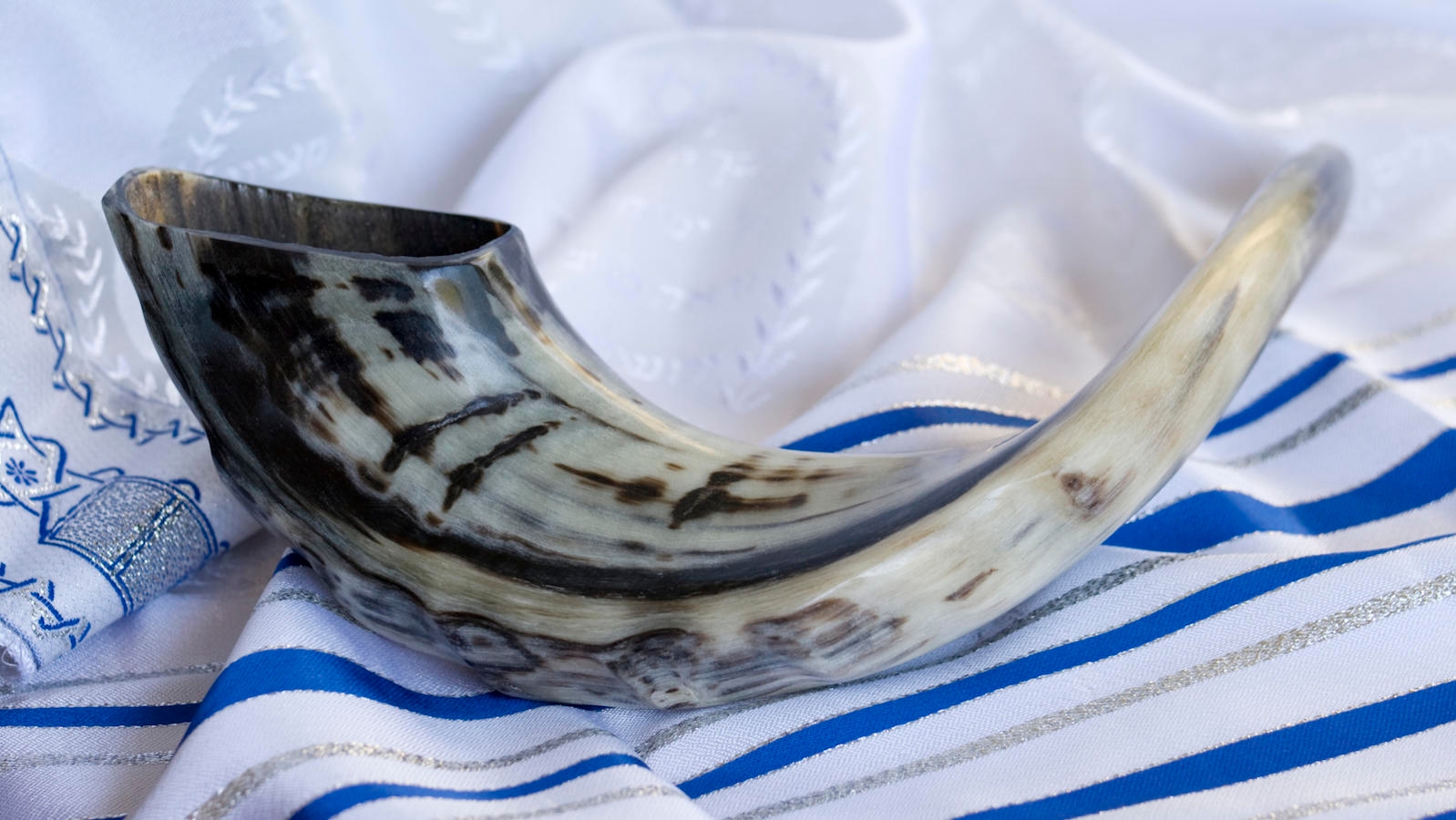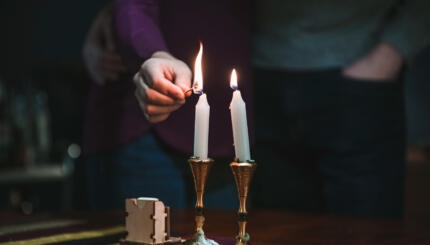Although rabbinic tradition has created a strong connection between Rosh Hashanah and Yom Kippur, there are major points of distinction between the two. On Rosh Hashanah we proclaim God King and acknowledge that we are responsible for our actions. Yet despite the day’s solemnity, the overall tone is positive and celebratory. The affirmative connotations of God’s remembering and visiting outweigh the seriousness of judgment. The Rabbis deliberately decreed that the biblical verses to be recited in the three special prayers on kingship, remembrance and shofarot should contain only positive ideas, and nothing indicating punishment. However, as we move toward Yom Kippur, even though we retain our basic optimism that the verdict will be positive (hence the wearing of white garb rather than black), the atmosphere darkens and turns somber. We begin to concentrate on the problem of sin, on the flawed nature of human beings, and on the removal of sin and guilt through repentance, forgiveness, and atonement.
As human beings, we try to define our place in the vast, mysterious universe in which we live. We want to understand our nature and how we relate to other living things. We think about what came before us and what will come after. We envision the end of life and ponder what follows.
The Yamim Nora’im [Days of Awe] respond to this need to understand ourselves and our place in the universe. At one point during the confession of the Yom Kippur Ne’ilah [closing] service, we articulate these questions in a way that seems to indicate a pessimistic, negative valuation of human beings and human life:
“What are we? What is our life? What is our piety? What is our virtue? What is our salvation? What is our strength? What is our accomplishment? What shall we say before You, O Lord our God and God of our ancestors? Are not all the mighty as nothing before You, men of renown as if they did not exist? The wise as if they lacked knowledge, the discerning as if they had no wisdom, for most of their deeds are valueless and the days of their lives a mere nothing before You. Man’s superiority to the beast is nonexistent, for all is futile.”
What an apt commentary on the pessimistic words of Kohelet (Ecclesiastes):
With your help, My Jewish Learning can provide endless opportunities for learning, connection and discovery.
Utter futility! said Kohelet. Utter futility! All is futile! What real value is there for a man in all the gains he makes beneath the sun? One generation goes, another comes, but the earth remains the same forever (Eccles. 1:1‑4).
Unetanah tokef [one of the unique High Holiday prayers] also expresses these feelings of awe at the enormity of God’s universe:
“In truth You are their creator and You understand what motivates them, for they are but flesh and blood. Man’s origin is dust and his end is dust. He earns his bread with the exertion of his life. He is like broken pottery, like dry grass, like a withered flower, like a passing shadow, like a vanishing cloud, like a breeze that passes by, like floating dust, like a dream that flies away.”
Yet, while these parts of the liturgy clearly indicate the insignificance of humankind in the face of divine presence, other parts raise a different point. The Ne’ilah prayer quoted above goes on to state, “You have set man aside from the very beginning, permitting him to stand before You.” On the one hand, then, human life seems to have very little value in the vast scheme of things, but on the other hand, we sense a special relationship between us and our Creator. Thus, for all our limitations, we are nonetheless creatures of worth.
On this matter, the sages gave us excellent advice. They said that each person should carry two notes in his or her pockets. On one would be the words, “For my sake the world was created.” On the other, “I am but dust and ashes.” When we despair of our value we look at the first. When we are too haughty, we look at the second.
This dichotomy is not between body and spirit, but between good and evil. Although we separate ourselves on Yom Kippur from bodily needs as much as possible, we do so only in order to emphasize the importance of the spiritual side of life, which we usually ignore, afflicting ourselves in order to gain a higher degree of holiness. The object is not to make this asceticism a part of everyday life, but to be able to return to normal life with greater self‑knowledge and awareness. The central dichotomy established by the Yom Kippur fast and prayers is therefore not between body and spirit, but between worth and lack of worth, between impulses toward evil and impulses toward good.
The Yamim Noraim are about choice. We are not toys of fate. We are not destined for sin and evil. We have the possibility of choosing the path to life. No matter what we have been, we can change and become better. If we seem to emphasize the dark side of life and of human beings, it is only in order to come to terms with our limitations, to recognize our faults, and to prepare to better ourselves.
Excerpted with permission from Entering the High Holy Days, published by the Jewish Publication Society.
Rosh Hashanah
Pronounced: roshe hah-SHAH-nah, also roshe ha-shah-NAH, Origin: Hebrew, the Jewish new year.
Yom Kippur
Pronounced: yohm KIPP-er, also yohm kee-PORE, Origin: Hebrew, The Day of Atonement, the holiest day on the Jewish calendar and, with Rosh Hashanah, one of the High Holidays.


